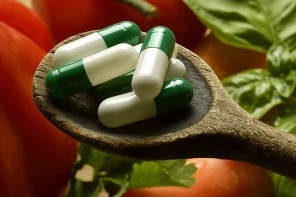What is more romantic than sharing a glass of delicious wine with the one you love on Valentine’s Day? Wait a sec – before you pop open your next bottle, consider its sulphite content.
The Lowdown on Sulphites
You see the word ‘sulphites’ or ‘sulfites’ listed on wine bottles, but what exactly does it mean? Sulphites refer to sulphur dioxide (SO2), a preservative that is used in winemaking. It is an antioxidant and contains antibacterial properties, thus keeping wine fresh. It is also found in other products, such as dried fruit, fruit juice, canned foods and medication to maintain its pharmaceutical strength.
Wine Headache, Anyone?
Sulphites can be dangerous to people who have a sensitivity to them. In such cases, they should be avoided just as one would avoid any other allergen. Common allergic reactions include an asthma attack or breathing difficulties, hives and rashes. Other reactions could include headaches or heart palpitations. Sulphite allergies are rare – less than 0.24 per cent of the population is sensitive to sulphites, with five per cent of asthma sufferers experiencing allergic reactions to them.
The biggest argument against sulphites is that they are dangerous if you are sensitive to them, just as is the case with nuts, gluten or other products. It’s important to remember that if you are not sensitive to sulphites but still get side-effects from drinking wine, such as headaches, this could actually be due to its other ingredients, such as histamines, tannins and tyramine.
Don’t Burst Your Bubble
If you are sensitive to sulphites, you should opt for wines that do not contain this added preservative. Watch out for ingredients listed on wines (and food) that signify sulphite content. These include potassium bisulfite, sulphur dioxide, sodium bisulfite, potassium metabisulfite, sodium metabisulfite and sodium sulfite.
When choosing organic wines, remember this: a wine that is labelled ‘organic’ must be made from grapes that are grown organically and it cannot have any added sulphites. It might have naturally occurring sulphites, however, but its sulphite content will be less than 20 parts per million. On the other hand, a wine listed as ‘Made with organic grapes’ or ‘Made with organically grown grapes’ could still include added sulphites.
It’s a myth that you should skip all red wine and opt for white instead if you are looking for low sulphite content. White dessert wines usually contain the most sulphur content, followed by medium-sweet white and blush wines. The wines containing the least amount of sulphur include dry white wines and dry red wines. It could also be a good idea to avoid mass-produced wines or those that are of poor quality, as these usually contain a higher level of sulphites.
Is a Sulphite-Free Wine Possible?
There are claims that producing wines that are completely free of sulphites is impossible because sulphites develop naturally as a by-product of fermentation. Wines that contain less than 10 ppm of sulphites (very low sulphite levels) generally are not risky to consume if people have a sulphite allergy. Wines that have less than this sulphite level are not required to put a label warning consumers that the product contains sulphites.
Image here











